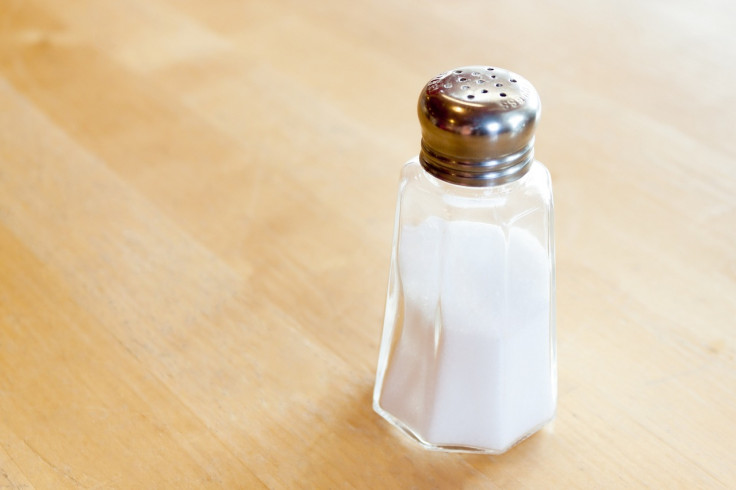Salt Substitute For Hypertension: Study Says It Reduces Low, High Blood Pressure Episodes

Patients with hypertension are generally advised to limit their salt intake. However, according to a recent study, the use of a potassium-enriched salt substitute is a safe way to enjoy the flavor without worrying about blood pressure.
Replacing regular salt with a potassium-enriched alternative reduces the chances of high and low blood pressure episodes in people with hypertension, according to findings of a recent study published in the Journal of the American College of Cardiology. The study also revealed that those people who use a salt substitute have a 40% less likelihood of experiencing hypertension compared to regular salt users.
Hypertension is a condition in which a person has higher blood pressure than normal (140/90 mm Hg or higher). It is considered one of the leading risk factors for heart disease, heart attacks, and mortality. Over 1.4 billion adults live with hypertension and the condition causes around 10.8 million deaths per year worldwide.
Although limiting salt intake is the general recommendation for managing hypertension, researchers of the study examined if salt substitutes could offer a better solution. They evaluated the impact of sodium reduction strategies on blood pressure among elderly adults in care facilities in China.
"Our results showcase an exciting breakthrough in maintaining blood pressure that offers a way for people to safeguard their health and minimize the potential for cardiovascular risks, all while being able to enjoy the perks of adding delicious flavor to their favorite meals," said Yangfeng Wu, the lead author of the study and Executive Director of Peking University Clinical Research Institute in Beijing, China, in a news release.
"Considering its blood pressure – lowering effect, proven in previous studies, the salt substitute shows beneficial to all people, either hypertensive or normotensive, thus a desirable population strategy for prevention and control of hypertension and cardiovascular disease," Wu said.
The study involved 611 participants spanning 48 care facilities, all aged 55 or older. The participants had a baseline blood pressure below 140/90mmHg and were not on any anti-hypertension medications.
The participants were split into two groups: 313 participants were asked to replace regular salt with the salt substitute, while 298 participants continued the use of usual salt.
"The primary outcome was participants who had incident hypertension, initiated anti-hypertension medications, or developed major cardiovascular adverse events during follow-up. At two years, the incidence of hypertension was 11.7 per 100 people-years in participants with salt substitute and 24.3 per 100 people-years in participants with regular salt," the new release stated.
"People using the salt substitute were 40% less likely to develop hypertension compared to those using regular salt. Furthermore, the salt substitutes did not cause hypotension, which can be a common issue in older adults."
But there are certain limitations of the study. It is a post-hoc analysis, meaning the analysis was done after the main study, and the outcomes were not decided beforehand. Some participants missed follow-up visits. However, the researchers found that these missing values occurred randomly, and additional tests confirmed that the results are still reliable.
"Adults frequently fall into the trap of consuming excess salt through easily accessible and budget-friendly processed foods. It's crucial to recognize the impact of our dietary choices on heart health and increase the public's awareness of lower-sodium options," Wu said.



























